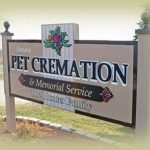 As human beings, we have a strong desire to have and take care of our pets. For many, a household pet is the equivalent of a true family member who we love and honor in life and in death. And, according to the American Pet Product Association (APPA), Americans spent approximately $47.7 billion on pet products and services in 2010.
As human beings, we have a strong desire to have and take care of our pets. For many, a household pet is the equivalent of a true family member who we love and honor in life and in death. And, according to the American Pet Product Association (APPA), Americans spent approximately $47.7 billion on pet products and services in 2010.
As a result of our love for pets, there has also been an increase in veterinary care facilities and pet crematoriums across the U.S.
Though as more pet crematoriums are being opened up, many local townspeople and town councils have been voicing their concern about odors emanating from these facilities.
For one pet crematorium opening up in Arlington Heights, Illinois, neighboring businesses were concerned about potential odors in the wake of a potential power outage. To mitigate this issue, the pet crematorium installed a back-up generator, as many of the deceased pets warehoused in the facility are frozen.
Installing a back-up generator is certainly a solid solution. Though any veterinary clinic or pet crematorium should also consider developing effective odor management strategies that extend beyond the user of generators. The use of natural commercial-grade odor eliminating products that are non-toxic can help these types of facilities have an even more effective “back-up” plan. And, for any pet lover who has taken their pet to the veterinarian, foul odors from sick animals and fecal matter, unfortunately, comes with the territory.
For pet owners, the humane treatment of pets in life and death is vital. As such, veterinary facilities should look for odor-management solutions that are safe to use, preserve the dignity of the animals and allow pet owners feel confident that their beloved pets are in good hands.



